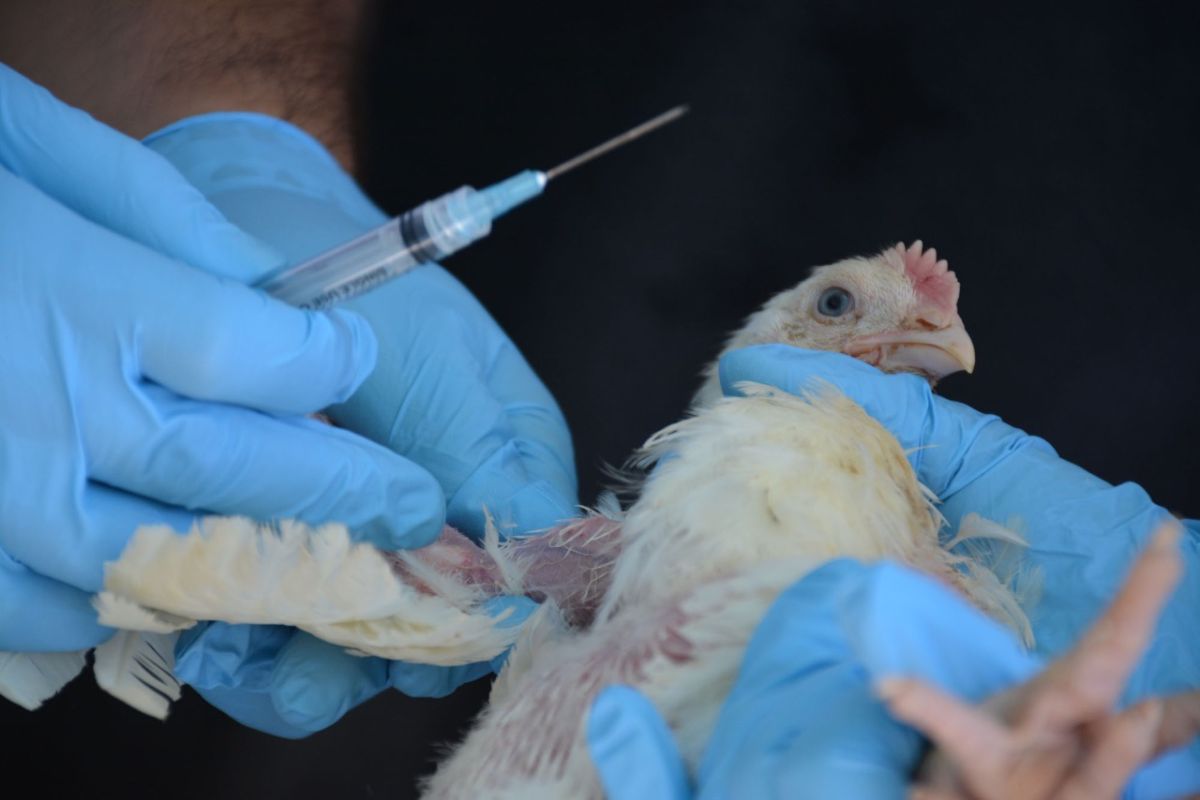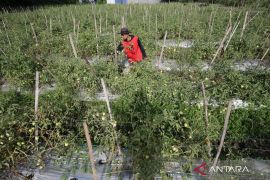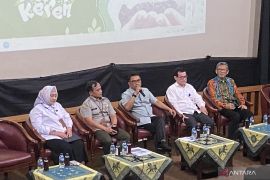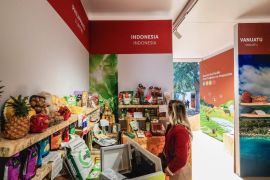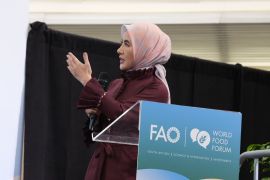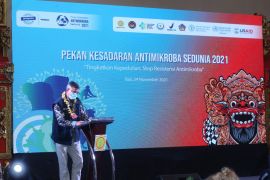In the course of 13 years of collaboration, we admit to the steady reduction in the number of AI casesJakarta (ANTARA) - The Food and Agriculture Organization of the United Nations (FAO) commended Directorate General of Livestock and Animal Health Services of the Agriculture Ministry (DGLAHS MoA) of Indonesia for successfully controlling avian influenza (AI).
"The FAO has extended support to the government’s avian influenza control program since 2006. In the course of 13 years of collaboration, we admit to the steady reduction in the number of AI cases," FAO Representative to Indonesia and Timor Leste Stephen Rudgard noted in the organization's statement, Wednesday.
The Ministry of Agriculture pointed to the yearly figure of poultry AI outbreaks plummeting, from 2,751 in 2007 to 476 in 2018.
A virus that attacks all domestic poultry, including chickens, ducks, and quail, causes AI, popularly called "flu burung," that can be transmitted to humans, with some strains causing a high mortality rate.
Indonesia has reeled under the impact of the AI virus since August 2003, with the virus spreading to numerous Indonesian regions in the span of several years. To safeguard the health of humans and poultry production in Indonesia, the government has offered its support to intensive AI control campaigns.
The ministry's Director General of Livestock and Animal Health Services Dr I Ketut Diarmita praised FAO for its contribution in controlling AI in Indonesia.
Several successes have been recorded under the cooperation framework between the government and FAO. Presently, AI control is prioritizing improving farm biosecurity, disease prevention through flock vaccination, and certification of compartments as being free from AI.
Another aspect of the program focuses on evaluating the dynamics of AI viruses circulating in the field to create effectual local poultry vaccines to protect farmers’ flocks.
This strategy has helped to reduce AI cases on farms and certify commercial farms as AI-free areas.
Indonesian poultry products carrying AI-free certification are ready for export to several Asian countries, Diarmita pointed out.
"Countries, such as Japan, with high animal health requirements, will accept Indonesian poultry products when Indonesian animal health and food safety guarantees are in place," he pointed out.
Team Leader of the FAO Emergency Center for Transboundary Animal Diseases (FAO ECTAD Indonesia) James McGrane stated that close collaboration between the Government of Indonesia and FAO must be continued under a new Emerging Disease Threats program to ensure lasting, sustainable impact.
"The continuation of this international cooperation will boost Indonesia's capacity to protect its people and their livelihoods from transboundary animal disease threats," McGrane remarked.
Diarmita responded positively to the offer of continued collaboration with the FAO and is upbeat of joint activities yielding optimal benefits for the development of livestock production and animal health in Indonesia.
Reporter: Yashinta Difa Pramudyani
Editor: Sri Haryati
Copyright © ANTARA 2019
